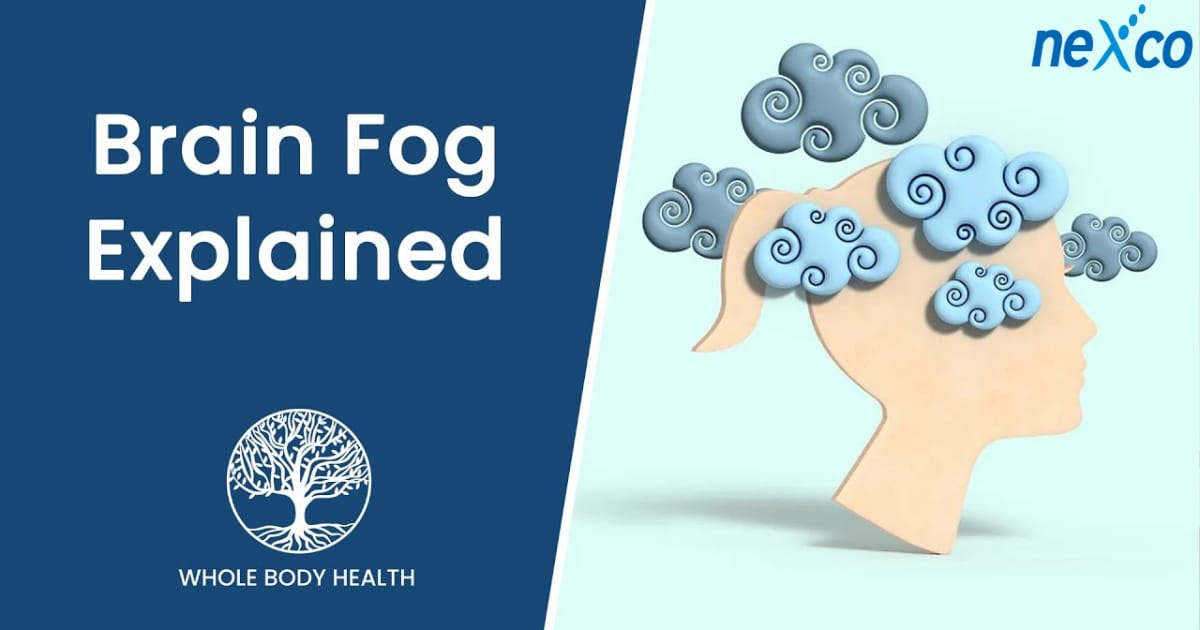Brain Fog: Understanding Mental Cloudiness and How to Overcome It

What is Brain Fog?
Have you ever noticed your ability to think clearly decline or felt sluggish?
We have all been there—walking into a room only to forget why, struggling to recall a name, or suddenly losing track of what we were about to say in a conversation. These tiny memory slips can be frustrating and sometimes embarrassing, making even the simplest tasks seem difficult.
These mental lapses are known as “brain fog” or “mental fog.” While not a medical condition itself, brain fog refers to a range of symptoms that cause cognitive dysfunction or impairment, affecting your ability to think clearly.
Symptoms of Brain Fog
If you are experiencing brain fog, you may notice:
- Confusion or distraction
- Lack of focus
- Forgetting simple tasks
- Trouble concentrating
- Getting lost easily
- Headaches
- Feeling sluggish
- Short attention span or slow thought process
- Low energy and mental exhaustion
- Procrastination
- Difficulty recalling information
- Feeling disoriented
These symptoms may indicate that you are experiencing brain fog.
Brain Fog After Illness or Treatment
Brain fog can sometimes occur after an illness or as a side effect of medication or treatment. A well-known example is Chemo Brain, a condition experienced by some cancer patients during or after treatment.
What is Chemo Brain?
According to the United States National Institute of Cancer, Chemo Brain is a term commonly used to describe thinking and memory problems in cancer patients before, during, or after cancer treatment.
Signs and Symptoms of Chemo Brain
- Disorganized behavior or thinking
- Confusion
- Memory loss
- Trouble concentrating and paying attention
- Difficulty learning new information
- Challenges in decision-making
Causes of Chemo Brain
Chemo brain may be caused by the cancer itself (such as brain tumors) or by cancer treatments, including:
- Chemotherapy and other anticancer drugs
- Radiation therapy
- Hormone therapy
- Surgery
Other factors related to cancer treatment can also contribute to chemo brain, such as:
- Anemia
- Fatigue
- Infection
- Pain
- Hormone changes
- Sleep problems
- Nutrition issues
- Stress, anxiety, and depression
The effects of Chemo Brain may last for a short period or persist for many years.
How to Clear Brain Fog
Nexcream or Nexavir Injectable may help you overcome brain fog and regain mental clarity.
FAQ
Brain fog, also known as mental fog, refers to cognitive dysfunction that makes thinking clearly difficult. It can cause confusion, distraction, forgetfulness, lack of focus, and mental exhaustion. Even simple tasks may feel overwhelming, making daily life frustrating.
Some common symptoms of brain fog include:
- Difficulty concentrating and remembering things
- Feeling mentally sluggish or disoriented
- Short attention span and slow thought process
- Frequent headaches and low energy
- Procrastination due to mental exhaustion
Chemo brain is a type of brain fog that occurs in cancer patients before, during, or after treatment. It involves memory problems, confusion, trouble concentrating, and difficulty making decisions. It may be caused by cancer itself or treatments like chemotherapy, radiation, surgery, and hormone therapy.
Yes, brain fog can also occur due to stress, lack of sleep, poor nutrition, medication side effects, or mental fatigue. It’s not always linked to a medical condition but can result from lifestyle factors as well.
Clearing brain fog often involves lifestyle changes like improving sleep, managing stress, and maintaining a healthy diet. In some cases, products like Nexcream or Nexavir Injectable may help restore mental clarity and reduce cognitive dysfunction.
